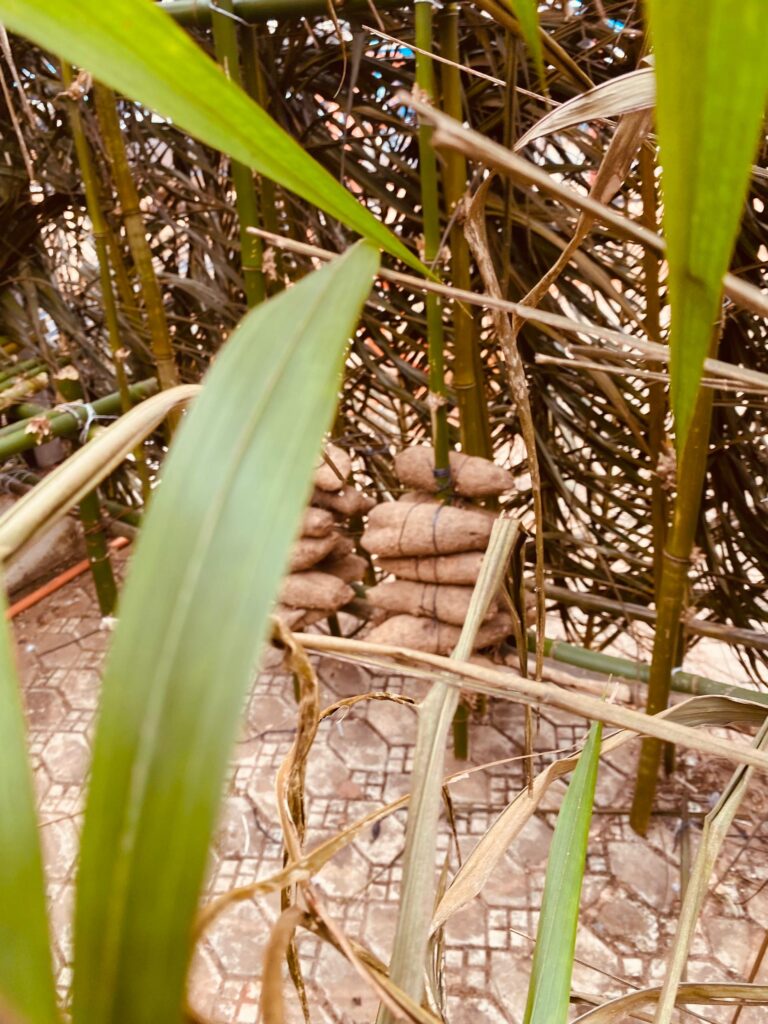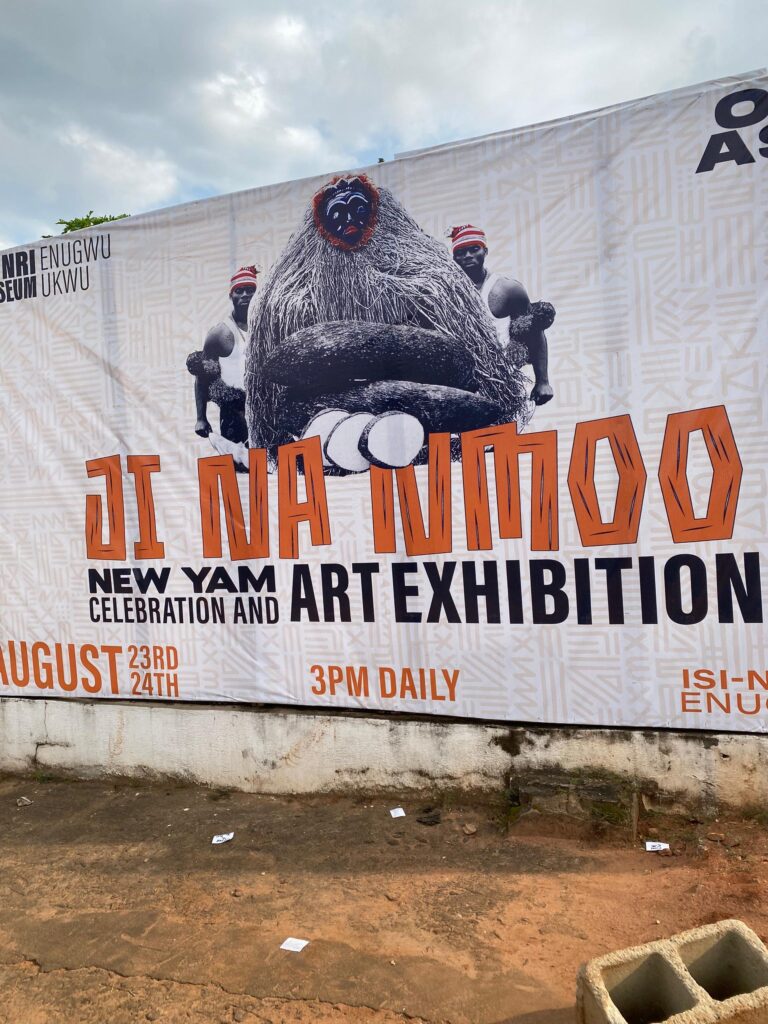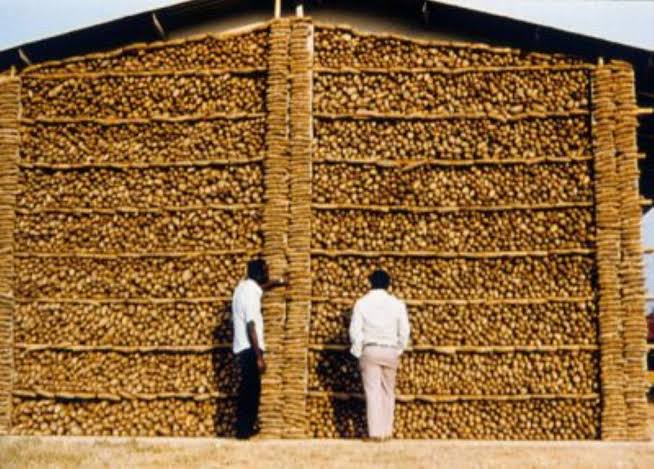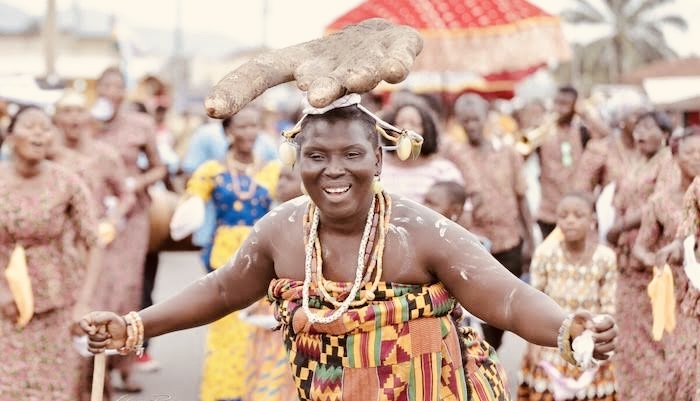Theme: First Harvest, First Voice
Guided by: Pathfinder Card — The Way Forward
There’s something about the first yam.
The way it rises from the earth like a secret finally told.
The way it gathers a people under one sun, be around one fire, on one day of remembrance.
This is Ìrì Jí; and it is not just a festival, it is a reckoning.
According to the African Igbo Calendar, the new yam festival is held in Ọnwa Ifejioku. This is a month that is dedicated to the yam deities ifejioku and Njoku ji and it is in this month that yam rituals are performed for Ìrì Jí. Ọnwa Ifejioku falls under July to August of the western calendar.
Even in faraway lands, where the soil is different and the air holds another language, our people still gather in honour of the New Yam Festival because distance does not uproot identity; it deepens it.

Across Igbo land, the New Yam Festival wears many names; Ìrì Jí, Ike Ji, Orureshi, Iwa Ji, Otute and more. But all agree that the yam is not merely harvested, it is welcomed, because no matter the name we call it, we all know that the yam is not just a crop, it is covenant.
To the outsider, Ìrì Jí may look like just another colourful celebration of masquerades dancing, elders pouring libation, maidens swirling like wind on clay. But beneath the drums is a deep rhythm and an even deeper significance: Ìrì Jí is the Igbo new year.
It is a sacred beginning.
It is the beginning of things.
The land has yielded. The gods have answered. The ancestors have watched.

During the days that lead up to the new yam festival, some activities are carried out in preparation of the ceremony. These activities include:
- Ọnwa Eja (Month for offerings): This marks a sacred period in Agwunsi month where offerings are made to the chi and the needy.
- Iwusi Ọji: This means putting down of the kolanut. This day falls mostly on the 6th day of Agwunsi and it marks the beginning of Ọnwa Eja
- Afo Ibuo Agbala: This is the afo day for cleaning of the village square to prepare for Ìrì Jí. This happens 2 days to the festival.
- Nkwonta Afua: This is the harvesting day where new yams and other crops are harvested. This day marks the end of the old year.
In Igbo land, yam is not just food. It is history beneath the soil. It is patience, character, survival. We do not rush to eat. We offer. We pour libation. We break kola. Because we know that to harvest without honour is to forget and to forget is to uproot ourselves from the very soil that holds us. It is usually the first crop to be harvested on Nkwonta day and it was and still remains the most important crop in sub-Saharan Africa.

No yam is eaten before it is first offered to Chukwu, to the spirits, to the lineage. This is not superstition, it is tradition.
The first yam is eaten by the oldest man in the community or the Igwe. The significance of this act is to present them as intermediaries between the community and the gods of the land.
To plant yam is to trust the process.
To weed it is to honour patience.
To wait for it is to master discipline.
And to harvest it is to declare a new beginning.
Ìrì Jí is the season where the first voice rises; not to shout, but to give thanks. The voice of land that swells with pride. The voice of ancestors returning in masquerade form to watch their children dance.
Ìrì Jí is the season where the first voice rises; not in noise, but in truth. It is the elder’s proverb. The child’s curiosity. The masquerade’s silent sermon. From Abia to Ebonyi, yam remains a symbol. A reminder that we belong to something old, something unshakeable.
We gather not just to eat. We gather to remember.
It is the one moment when the village square is not divided by the tussle of power, but is united by the sounds of laughter, the sharing of kola nuts, and the feast of ji ahuru ahu na mmanu.
Ìrì Jí is not just a thanksgiving for what has come, it is a faith in what is still possible. The yam in our barns today is proof that the land still listens, that the gods still bless.
And for those who feel unprepared for the next season, have this in mind:
“Chi nyere nwa ogbenye ji, ga-enye ya mbazụ ọ ga-eji egwuru ya.” (The god that gave the yam will also give the hoe to harvest it.)
The same hands that lift the harvest will find strength to plant again. That is the rhythm of Ìrì Jí; a renewal, not just a reward.
First Harvest, First Voice: This is a call for us to look again at what Ìrì Jí has always whispered:
“If the yam fed you, tell the story.”
“If the earth gave you, give back.”
“If you’ve survived another season, you must speak.”Even in a season of plenty, it is possible to lose our way. We can have yam in the barn and still suffer spiritual famine.
As the Igbo say, “Ewu nwụrụ n’ọba ji abụghị agụụ gburu ya.”
The goat didn’t die of hunger, it died surrounded by abundance.
This proverb is a warning: when we forget the meaning behind our rituals, when we trade reverence for routine, we risk decay from within.
Ìrì Jí is more than food, it is a call to remember what feeds us beyond the stomach. It is a chance to begin again, with gratitude, with vigilance, and with truth.
At BlaccTheddi, we believe that truth is a harvest. And like the yam, it must be dug up carefully. Peeled with courage. Cooked with context. And shared with a community that understands its weight.
We harvest yams the way we harvest stories; with careful cultivation, deep listening, and communal offering.
Ìrì Jí is not just about celebrating the crop, it is about reclaiming our voice.
It is the season to say, we are still here.
That the land still hears us.
That our stories still matter.
So let the masquerades dance. Let the mortars pound. Let the voices rise.
Because the first yam has come.
And the first voice must speak.
Let no one say we were silent when the harvest came.
Let no one say we did not honour the earth that carried us.
This is our beginning, again.
